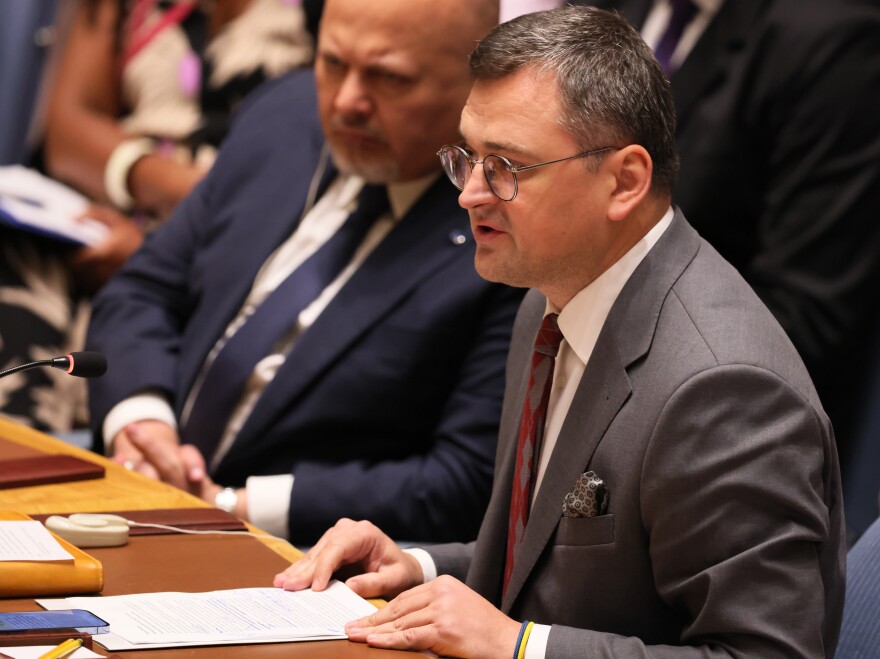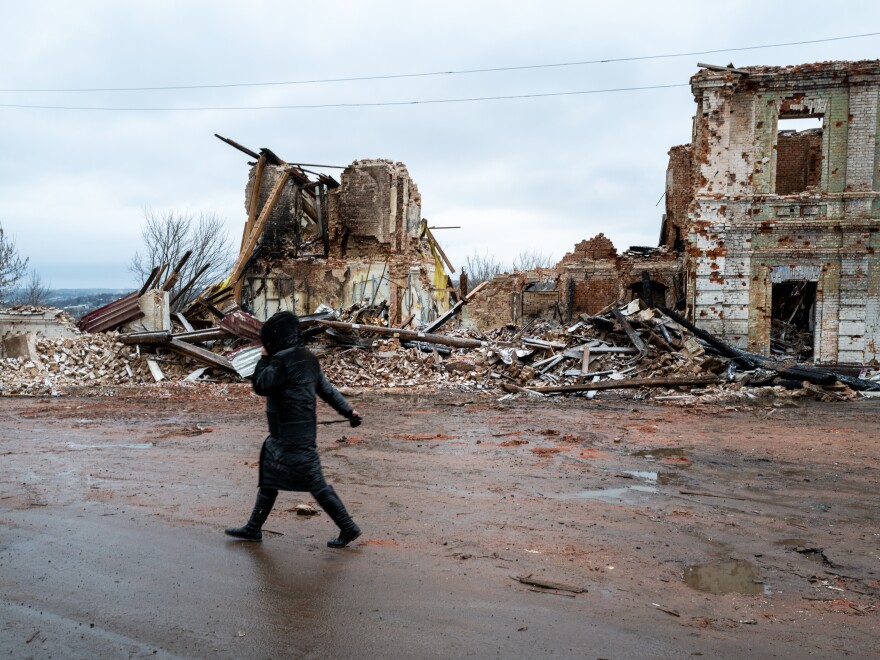In Ukraine, the weekend came and went — along with Russian President Vladimir Putin's self-proclaimed ceasefire.
Except that there were in fact no signs of a ceasefire. Instead, both Russia and Ukraine accused the other of continuing to launch attacks.
Ukraine had never agreed to a ceasefire, arguing it was just a Russian excuse to regroup. So where do things go from here, both on the battlefield and on the diplomatic front?
All Things Considered host Mary Louise Kelly speaks to Ukraine's Foreign Minister Dmytro Kuleba about the so-called ceasefire, the options Putin has left, and what counts as a victory for Ukraine from here on.
This interview has been lightly edited for length and clarity.
Interview highlights
On the non-ceasefire over the weekend and Russia's claim it killed Ukrainian soldiers in Kramatorsk
Well, there are two big Russian lies. The one on the ceasefire, and it working — it's not only the government of Ukraine who rejects this allegation. It's also the international media present on the ground in Kramatorsk, who immediately went to the places where allegedly Russian missiles hit dormitories with Ukrainian soldiers. And it didn't happen, these soldiers did not die. So, this is just one — another evidence that you should never trust what the Russians are saying.

On Vladimir Putin's strategy and how it has changed over the past year
Oh, I think we were — we miscalculated him. By the time he was pulling all this army to the border of Ukraine. Deep inside, he made the decision that he was going to invade and he was setting the stage for this invasion. But, you know, we are looking back in this situation, and now we can understand the sequence and the logic of his actions. Things were not as clear as they look now ... If I look at the battlefield and the situation now, I think that Putin doesn't have too many options.
In fact, I think he has only one option, but he doesn't want to accept it. And that option is losing the war. The difficulty and the tragedy of this moment is that he is not willing to face the truth and to seek the way out. Instead, he's throwing more and more resources and, most importantly, human resources into the battle, trying to win at any cost. But this is not going to happen. He's not going to win.
On what counts as a victory for Ukraine
Well, point one is restoration of Ukraine's territorial integrity within its internationally recognized borders.
For us, there is no difference between Crimea and Donbas. There is no difference between Kherson and Simferopol or Yalta, cities in Crimea... [Crimea is] just another part of Ukraine that was stolen by Russia.
As simple as that. And yes, we are talking about the restoration of Ukraine's territorial integrity, including every square inch of our soil ... We always have to remember that the probability of Ukraine surviving the Russian invasion and the probability of you and me talking in January 2023 was even less likely and was even lower than the one you were mentioning ... Ukraine has outperformed even its own expectations.

On any signs that Russia may be willing to negotiate
Not at this point. In fact, we see that they are rejecting the peace formula proposed by President Zelenskyy. But it doesn't mean that we shouldn't keep trying. We have to pursue a diplomatic process as well. And this is what President Zelenskyy came up with: The peace formula consisting of 10 simple steps. Some of them require Russia's participation, some don't. Russia may like it or may not like it, but it's about building a coalition — a coalition of countries who are willing to seek a diplomatic solution along the lines proposed by President Zelenskyy.
On why aid from the U.S. to Ukraine should continue
Because if Ukraine loses, the world – in which the United States plays such an important role – will begin to fall apart. Because if Ukraine loses, countries – some malign actors across the world – will prefer to follow the Russian path and to take the same risks: to invade, to commit atrocities, to destroy trade.
And this is everything that the United States had defended over decades and centuries of its foreign policy.
It's up to the U.S. government and other partners of Ukraine to make their decisions on how long they are going to support us. But we have made our choice, we have made the decision. We are going to fight against an invader as long as we can breathe.
Copyright 2023 NPR. To see more, visit https://www.npr.org.











